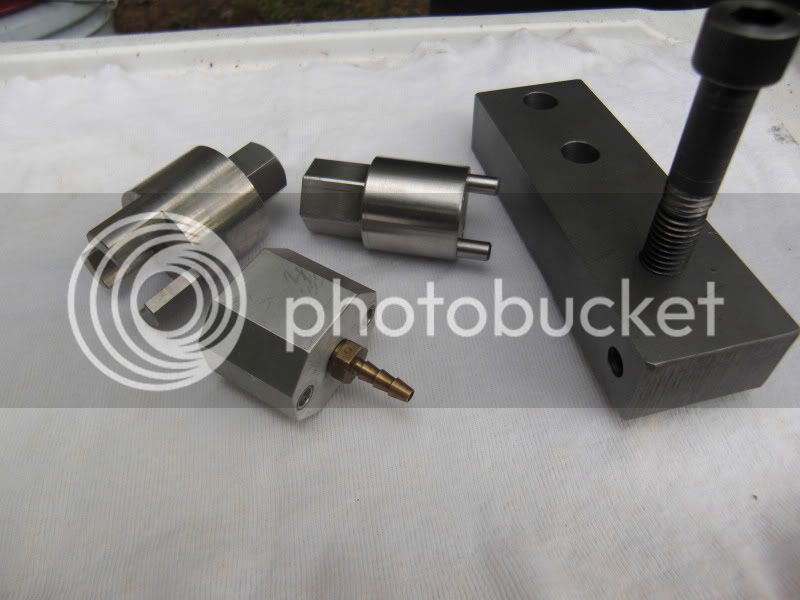Lawrence, I was going to reply to this last week, but Trimmmed sent me to the time-out chair for the weekend.

LOL.
Common lathe threads are 3/4" X 16TPI, or 1" X 8TPI, which is the more common and robust of the two. My Viel duplicator lathe has a non-standard 5/8" thread, the same as a tablesaw arbor, so I can't use any standard accessories with it.

Which is why I've been on the lookout for a decent lathe on the cheap.
Did you ever get a price on that big Rockwell drill press? Those are indeed nice machines. Built solid so they can be fixed if they do fail too, not just thrown away.
I made good use of my time-out though; I picked up these two at a sale on Sunday:
Got this vacuum tester for $15. It's like brand new, and came with a hodge-podge of rubber nipples, check valves, and adapters. I don't know anything about Stant as a brand, but it looked like it was certainly worth $20 and more well-built than the plastic Mity-Vac I paid almost $50 for last year...
This is a megohmmeter insulation tester, used for testing wire insulation in things like coils, transformers, and motors; I got it for $5. They're more commonly referred to as "Meggers" by electricians, at least the ones I've worked with at the mills anyway. I talked to my cousin, who is such an electrician, and he said he thought they were worth anywhere from $200-400 new depending on the make and model. It's not something I'd have ever considered buying at those prices, but it should come in handy to test the handful of motors I have lying around with various issues.
Basically you hook one line up to one lead of the coil you want to test, and the other up to ground or another coil's lead. Winding the handle generates an extremely high voltage, and the very sensitive meter measures the resistance of the insulation between the connections. Everyday ohmmeters are not nearly sensitive enough for this, and will just register a 0 or error. If this thing is registering 0, you have a burnt coil or motor on your hands.
This thing will light you up like a Christmas tree, let me tell ya! Just a light turn, maybe 60 RPM, generates enough voltage to arc against your skin.

























































 Cracked the screen yesterday
Cracked the screen yesterday
 LOL.
LOL.